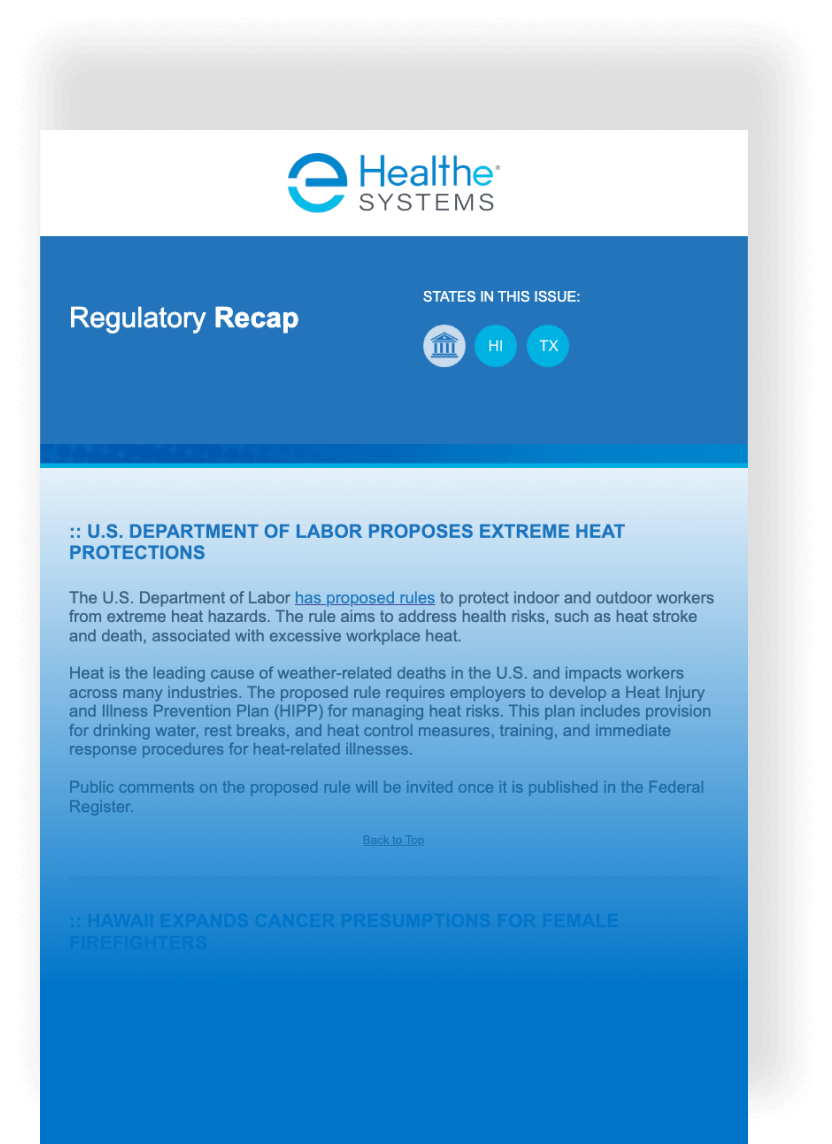The National Council on Compensation Insurance (NCCI) published their 2025 Regulatory and Legislative Trends report, highlighting key legislative and regulatory developments affecting workers comp.
NCCI tracked 950 state and federal bills impacting workers’ comp, including 592 where NCCI provided ratemaking services. As of July 31st, a total of 164 bills affecting workers’ comp were enacted, along with 65 regulations adopted.
Mental health coverage saw significant attention. States continue expanding coverage for PTSD and psychological injuries for first responders and additional workers. Nevada and Tennessee broadened PTSD presumptions, while West Virginia removed coverage limits. Meanwhile, Hawaii, Illinois, Kentucky, New York, South Carolina, and Texas still currently have bills in progress.
Several states enacted or proposed laws expanding cancer presumptions for firefighters. Nevada, Utah, Virginia, and Wyoming passed new legislation. California, Connecticut, Hawaii, Nebraska, and West Virginia are considering similar bills.
Legislatures are redefining employment status and evaluating benefits for gig workers with the key focus on transportation network company drivers and marketplace contractors. Arkansas and Texas enacted new classification laws, while Iowa, New York, and Pennsylvania have bills in progress that would address worker classification as well, if enacted. Meanwhile Hawaii and Rhode Island introduced portable benefits proposals. Other states such as Minnesota, California, Wisconsin, Alaska, Oregon, and Hawaii still have various different bills pending that address gig network company drivers.
Ten states are studying or proposing single-payer systems. Six of these include a workers’ comp component. In Congress, federal Medicare-for-All bills (HR 3069 and S 1506) also reference workers’ comp.
Many states continue to debate marijuana legalization and reimbursement requirements in workers compensation. Proposed bills in New York (AB 4744 and SB 6549) and Massachusetts (HB 2169) would require reimbursement for medical cannabis. Additionally, states like Hawaii, New Hampshire, Pennsylvania are considering legalization of recreational marijuana use, while several other states saw similar bills fail.
NCCI continues to monitor a growing trend of legislation aimed at legalizing or expanding medical access to substances such as psilocybin, LSD, mescaline, peyote, and other plant- or fungus-based hallucinogens. These drugs have gained attention, due to their potential to treat certain mental illnesses. Some bills specify that reimbursement is not required. While not directly tied to workers’ compensation, these developments may have future impacts.
Additional emerging topics of interest include:
- Alternative insurance, including plans outside of the workers’ comp system
- Artificial intelligence
- Heat-related injuries
- Workplace violence







